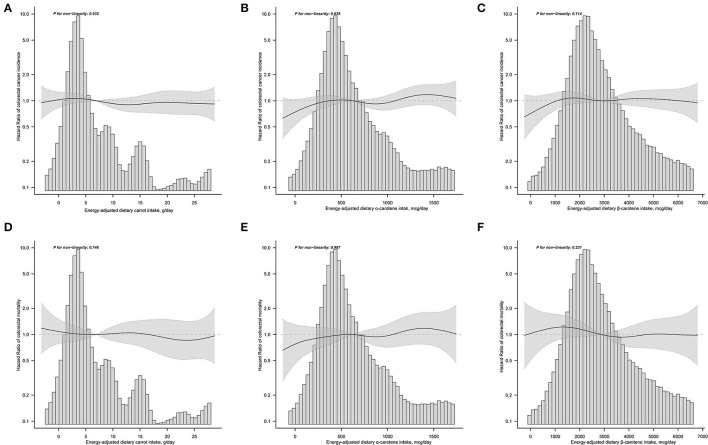Figure 2.
Does-response analyses for the associations between energy-adjusted dietary carrot intake (A), dietary α-carotene intake (B), dietary β-carotene intake (C) and colorectal cancer incidence; and the associations between energy-adjusted dietary carrot intake (D), dietary α-carotene intake (E), dietary β-carotene intake (F) and colorectal cancer mortality were performed with smooth curve fitting using the generalized additive model. Hazard ratios and 95% confidence interval were calculated by the fully-adjusted multivariable Cox regression model, including age, sex, race, trial arm, marital status, BMI, educational level, aspirin use, cigarette smoking, alcohol drinking, diabetes, family history of colorectal cancer, energy intake from diet, supplemental Beta-Carotene, supplemental Calcium, supplemental Vitamin A, supplemental Vitamin C, supplemental Vitamin D, and Supplemental Vitamin E. Solid lines represent point estimates and dashed lines represent corresponding 95% confidence intervals. The histograms show the percentage of participants belonging to each level of specific energy-adjusted dietary carrot/carotene intake.

